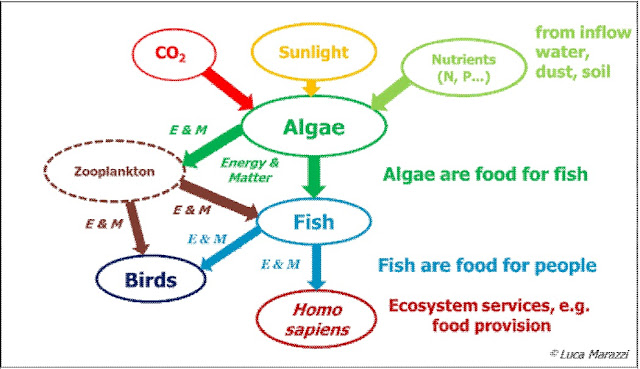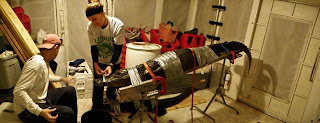Don’t miss the forest for the trees: some tips from an advanced (yikes) PhD candidate to those starting out and anyone really
Ike Onwuka
PhD Candidate
Earth and Environment
FIU
1. Ask early and often
Resist the narrative
that you need to figure things out for yourself all the time. If there is
something, say a method, you saw in a paper that is useful but difficult to
understand, reach out, do not wait, email the author(s), make phone calls, and
don’t be afraid to send gentle reminders …we are all busy? Reaching out can
save you precious time and perhaps a collaborator/reviewer.
2.
Find your tribe
This is important for
your overall well-being. Look for people who are in similar situations like
you: your cohort, lab mates or students in other programs/colleges. Share
experiences, challenges, victories and insights. See your cohort as
collaborators not competitors. You make faster progress this way. The
experience as a coauthor will be helpful as a first author. FCE student group
is a great tribe to belong to :).
3.
Find a mentor(s) or
join a group that has one
Not necessarily your
advisor or committee, but someone who is experienced with academia/PhD and is
outside your domain. They will give you a different perspective about the PhD
journey. Today's (world) struggles are different from a decade ago, so get someone
who understands in real time the ups and downs of a PhD pursuit, say a postdoc,
an assistant professor, or a recent alumnus who transitioned to industry. I am
part of an academic/data science group where I have gotten tips on topics
ranging from dissertation writing to behavioral interviews.
4.
Join an
academic/professional society with an active student component
This is great for
networking, leading and advocating. Also, conferences are good exposure to the
broader academic community (big picture) which can be overwhelming but
inspiring no less, and you get to travel to new cities! These societies usually
have some funds for graduate students for research and travel, which is always
great!
5.
Rejection is hard but
can be useful
Rejection is part of
life and PhD. Being denied grants and fellowships can be discouraging. However,
you can see each unfunded application as a ‘refinement’ of your research
proposal or dissertation. The more you write, the more you understand what your
research is about, which makes you write better, and makes it easier to convey
the significance. And the feedback from reviewers can be helpful, just give
yourself some time before reading them, so you don’t take it personally. Also,
when you add up all your writings funded and unfunded, a good portion of your
dissertation would already be written! Don’t give up, I got one fellowship on
the third attempt!
6.
The journey is just as
important as the destination
Yes, a completed dissertation
is the goal, but don't forget who you are becoming along the way. I’m not just
talking about hard/technical skills like data expertise, but soft skills and
character development: perseverance/resilience, communication/presentation,
empathy, conflict resolution (lab mates, advisor) optimism and hope (in the
face of failing experiments or unpredictable field experiences), ingenuity and
adaptability (developing new/alternative methods).
7.
Expertise will come in
time
The more you stick
with something, the more you know, the more you become an expert and the more
confident you become, and the less of an imposter you will feel. I have seen
this in my writing and speaking. I use ‘maybes’ a lot less as precursors to my
explanations.
8.
Use your degree pursuit
to prepare for the career you desire
Look at the
requirements of the jobs you would like and start to develop those skills as
part of your program, e.g. volunteering, teaching, consulting, leading, data
analyzing, citizen outreaching. The beauty of a PhD program is that it is less
structured, so you can dictate how it goes (to a good extent). There are some
cons to this but let’s look on the bright side:)
9.
Do a deep dive into
university resources
Universities have lots
of helpful resources which can be overwhelming during orientation week. So,
after things have cooled off, or during your semester break, do a deep dive
into the different (usually free) programs and services (therapy, writing
retreats, career workshop, funding resources and opportunities) your
institution offers grad students, you’d be surprised.
10.
Rest, relax and
explore
Schedule time off
routinely to recharge and rejuvenate, no not just binging Netflix on the
weekends, but other forms of decompressing: a quick weekend getaway, a road
trip, a 10-day summer vacay in Boston, (very historic city), go to the beach,
museum, orchestra, ComiCon, National Park. You’d come back energized and
perhaps with the solution to a problem that had plagued you.
Well, these are my two
cents, well ten, hope it helps! Don’t miss the forest for the trees!



Comments
Post a Comment